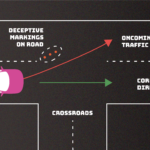Artificial intelligence, which generates text or images based on prompts, learns in a manner akin to human learning. It acquires language skills, enriching its vocabulary through interactions and storing these experiences as data to enhance future responses.
The Utah Legislature members aim to educate individuals in the Department of Commerce and the business community in Utah about AI using a similar approach.
SB149 was advanced to the full Senate by the Senate Business and Labor Committee on Thursday following a unanimous vote. If approved, the bill would establish an AI “learning lab” for companies and state entities to stay abreast of the latest AI advancements and trends, fostering a deeper understanding of AI regulation within the state.
Despite AI’s ability to mimic human behavior, it remains distinct from human beings. The proposed bill seeks to impose immediate regulations on consumer-facing AI technologies.
During the committee session, Margaret Busse, the executive director of the Utah Department of Commerce, emphasized the necessity of implementing protective measures promptly.
Under SB149, companies utilizing generative AI could be held liable if their technology deceives consumers, contravening Utah’s consumer protection statutes. For example, companies deploying AI-powered bots would be accountable if the AI misleads consumers into believing it is human.
Busse underscored that AI cannot be used as an excuse for deceptive practices.
The bill also mandates that consumer-facing generative AI systems, such as chatbots or text generators, must truthfully disclose their non-human identity when asked, “Are you human?” especially in regulated sectors like healthcare, mental health, and finance.
Busse stressed the importance of individuals being informed when engaging with non-human entities during sensitive interactions.
Senator Kirk Cullimore, R-Sandy, the bill’s sponsor, acknowledged the general reluctance in Utah to impose stringent regulations on businesses but clarified that fraudulent practices are already prohibited. He asserted that the bill merely clarifies accountability in AI-related scenarios.
Support for the legislation was expressed by various stakeholders, including business owners, professionals, representatives, and individuals involved in AI development.
Bree Jones, owner of two software companies, highlighted AI as a pivotal technology rather than a niche segment within the tech industry. She expressed concerns about potential misuse of AI due to its growing power and accessibility.
Vice President Ginger Chinn of the Salt Lake Chamber of Commerce emphasized the bill’s significance as a legislative priority, emphasizing its role in fostering innovation and protecting businesses.
Cullimore emphasized the rapid evolution of artificial intelligence, emphasizing the government’s need to proactively address AI advancements. The AI Learning Lab proposed in the bill could facilitate comprehensive analysis of AI capabilities by companies without fear of repercussions.
The bill envisions lab participants evaluating the risks, benefits, impacts, and policy considerations of new AI systems, leveraging their collective expertise to inform regulatory frameworks. The laboratory’s operations are likened to the functioning of relational AI systems today.
Shannon Sollitt, a member of the Report for America corps covering sustainability and corporate accountability for The Salt Lake Tribune, encourages readers to support her work through tax-deductible donations to sustain impactful journalism.










